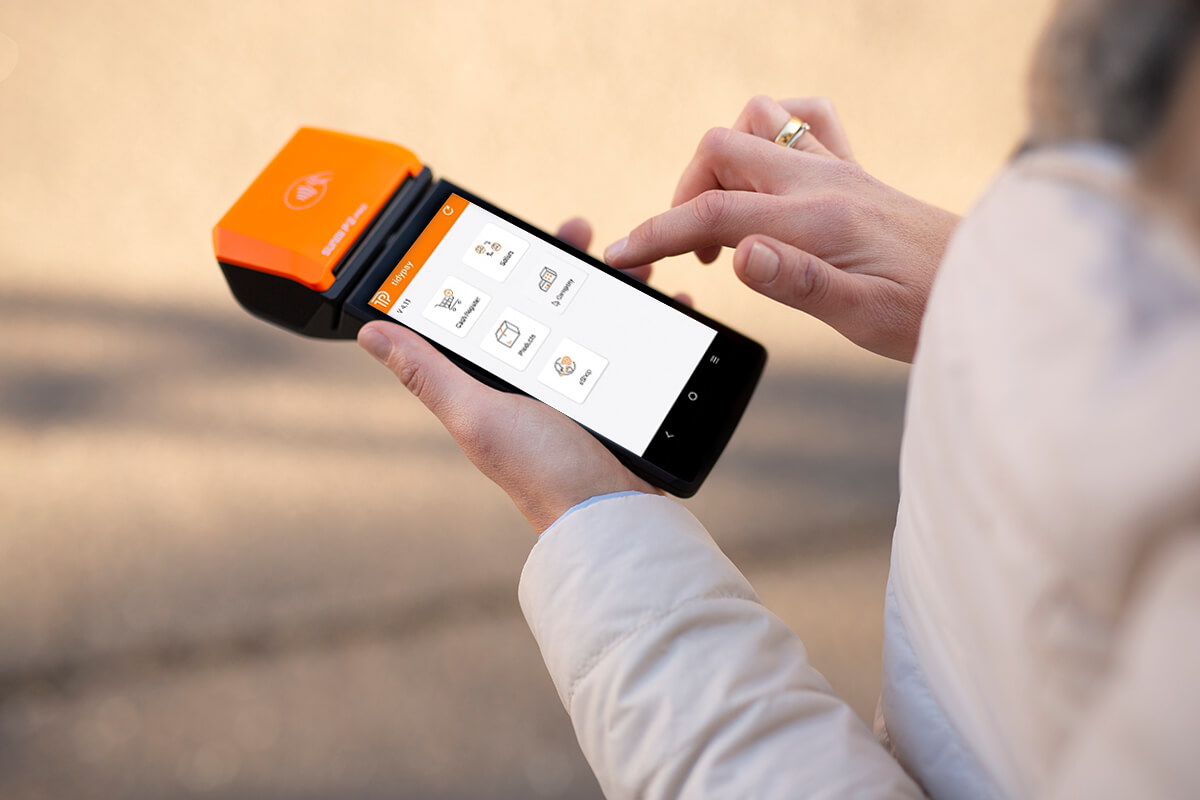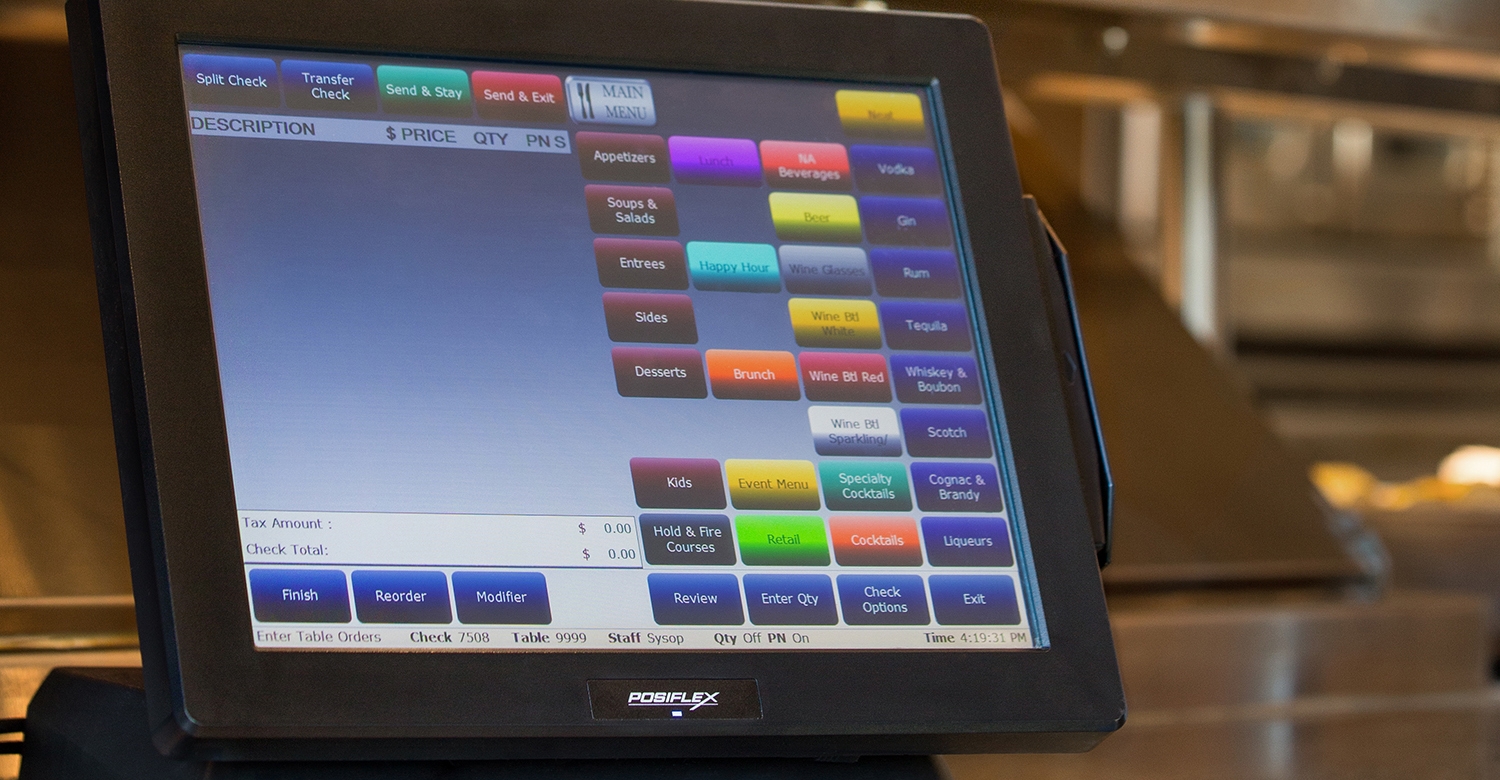Top Guidelines Of Point Of Sale Software
Top Guidelines Of Point Of Sale Software
Blog Article
Not known Details About Point Of Sale Software

POS Software: Retail Point-Of-Sale Solutions Streamline Transactions
The Ultimate Guide To Pos Machine

Hardware Elements of a Point of Sale System What makes a POS system tick? It's not simply software application; the hardware plays a starring function. Consider it as the body to the software application's brain. Without the right hardware, even the most sophisticated POS software application is just a pretty face. Important POS Hardware So, what are the must-haves? Let's simplify. The central processing unit, often a computer or tablet, is the heart of the operation. The screen or touchscreen display enables staff to connect with the system. A barcode scanner speeds up the checkout process. Remember the days of by hand entering each code? The trusty receipt printer provides clients with a record of their purchase. A money drawer keeps your money safe and arranged. A card reader enables clients to pay with credit or debit cards. Diving Deeper: Beyond the Essential However wait, there's more! Depending on your organization, you may require specific hardware. For example, a dining establishment might integrate cooking area printers to relay orders, while a store might utilize label printers for product tagging. Ever question how your local pastry shop instantly prints those delicious-looking labels? Selecting the Right Hardware: A Balancing Act Choosing the best hardware isn't almost buying the most costly equipment. It's about discovering the sweet area in between functionality, durability, and budget. A small company simply starting may decide for a more fundamental setup, while a high-volume merchant will need robust, high-performance makers. Is it much better to buy brand-new or used? Consider your alternatives carefully. A brand-new system offers the current innovation and service warranty protection, however a refurbished system can conserve you money. The Future of POS Hardware What does the future hold? Anticipate to see even more combination with mobile phones, biometric scanners for staff member authentication, and advanced analytics control panels displayed on bigger, clearer screens. Envision a world where stock is instantly updated in real-time as products are scanned-- a world where you can track your very popular product from anywhere in the world. The possibilities are unlimited, and the hardware is continuously developing to meet the needs these days's companies. Are you prepared to upgrade your point of sale system?
Software Application Characteristics and Capabilities: The Heart of Your POS System
Ever see a skilled barista glide through a busy morning rush? Their trick isn't just caffeine; it's a seamless dance with their POS system. The software application is the conductor of your company symphony, managing whatever from sales to stock. What notes should you be listening for? What abilities truly matter in today's market?
Stock Management: Beyond Counting Beans
Forget spreadsheets that haunt your dreams. Modern POS systems provide real-time inventory tracking, alerting you when your stock of artisanal coffee beans dips precariously low. Think about it as a digital guardian angel, preventing those awkward "Sorry, we're out!" moments to customers. What if you could also predict need based upon historical information? Lots of systems now use forecasting tools, an effective weapon against overstocking and lost sales. This helps avoid the circumstance of lacking popular products or building up excess stock of slow-moving items, both of which can constrain cash circulation and space.
Sales Reporting and Analytics: Decoding the Data
Sales data is the brand-new gold, and your POS system is the miner. Forget just knowing just how much you offered today. Dive deep into the data to discover trends, identify your very popular items, and understand customer habits. Which menu item pairs completely with the day-to-day special? Which promo resonated most with your customers? These insights are not simply intriguing; they're actionable intelligence. Without reputable sales reporting, browsing the complexities of company decision-making becomes like sailing without a compass, increasing the possibility of missteps and missed out on chances.
Client Relationship Management (CRM): Building Bridges, Not Walls
Keeping in mind a regular consumer's name and preferred order is lovely, but scaling that individual touch is difficult. POS systems with CRM capabilities enable you to track customer purchase history, preferences, and even birthdays. Think of instantly providing a discount on their birthday-- a little gesture that cultivates loyalty and encourages repeat organization. But there is the possible snag of bad information quality, which can cause incorrect client profiles and inefficient marketing efforts.
Payment Processing: Streamlining the Deal
The checkout experience can make or break a sale. Seamless integration with numerous payment approaches-- credit cards, mobile wallets, even copyright-- is non-negotiable. Can your system handle split payments? Does it offer safe tokenization to safeguard client information? A clunky payment procedure resembles hitting a sour note in your service symphony, potentially disrupting the entire efficiency. Guaranteeing compatibility with evolving payment technologies and adherence to security standards are vital for preserving customer trust and operational effectiveness.
Staff Member Management: Keeping the Group in Sync
From clocking in and out to handling authorizations and tracking efficiency, staff member management features improve operations and improve accountability. Is scheduling a headache? Lots of POS systems use integrated scheduling tools, enhancing staffing levels based on forecasted demand. A common obstacle that is frequently neglected is the challenge of incorporating employee management performances with payroll systems, which can lead to mistakes and ineffectiveness in wage computations.
Advanced Features: Leveling Up Your Operations
- Table Management: Suitable for restaurants, this feature enables you to picture your dining room, track table status, and manage reservations.
- Loyalty Programs: Reward your best consumers and motivate repeat company with incorporated commitment programs.
- Online Buying Combination: Seamlessly incorporate your POS system with online ordering platforms to broaden your reach.
Choosing the best POS system has to do with more than simply functionality; it has to do with discovering a partner that can grow with your service. Consider your current needs, prepare for future development, and don't hesitate to ask the tough questions. The best software can change your company from a chaotic cacophony into a harmonious masterpiece.
Industry-Specific POS System Applications
Consider the regional bakery, busy with morning clients yearning fresh croissants. A generic POS system might deal with deals, but can it handle intricate dishes, track ingredient stock, or automatically change production schedules based on sales data? Most likely not. That is where the beauty of industry-specific POS systems shines.
Dining establishments and Hospitality
For busy restaurants, speed and accuracy are paramount. The number of times have you seen servers juggling orders, adjustments, and splitting costs, all while attempting to provide outstanding service? A restaurant POS system streamlines these processes, permitting for table management, kitchen order tickets, and even online purchasing combination. These systems typically include functions like ingredient-level stock tracking, important for managing food expenses and reducing waste. Ever wonder why your preferred dish is in some cases not available? It might come from a lack of appropriate stock management.
- Table Management
- Kitchen Order Tickets
- Online Ordering Integration
- Ingredient-Level Stock Tracking
Retail Solutions
Retail, with its diverse stock and consumer interactions, demands a different set of tools. Envision a shop clothes shop struggling to keep an eye on sizes, colors, and seasonal collections utilizing a basic checkout system. An industry-specific retail POS system provides functions like barcode scanning, consumer loyalty programs, and in-depth sales reporting. These systems can even incorporate with e-commerce platforms, providing a smooth omnichannel experience for consumers. Did you understand some retail POS systems can predict future sales trends based on historic information? Now that is effective!
The Perils of an Inequality
Choosing the incorrect POS system can develop significant operational obstacles. A clothing store using a dining establishment POS, for instance, would discover it inappropriate for managing inventory with sizes and colors. The lack of correct reporting and analytics could cause misinformed acquiring choices and lost revenue. The result might be comparable to attempting to fit a square peg in a round hole.
Secret Factors to consider
Choosing an industry-specific POS system requires careful evaluation. Think about your company's unique needs and functional workflows. Does the system integrate with existing software application? Does it offer the required reporting abilities? Is it scalable to accommodate future growth? A well-chosen POS system is not just a transaction tool; it's a strategic property that can drive effectiveness, improve client complete satisfaction, and ultimately, boost your bottom line. Remember, it is an investment in your business's future, not simply a cost.
Security Factors To Consider for Point of Sale Systems
Ever heard the tale of the mom-and-pop store that lost everything because of a single, overlooked security defect in their POS system!.?. !? It's a cautionary tale, and it highlights a critical aspect often eclipsed by the allure of expensive functions and streamlined operations. The truth is, a POS system is just as great as its security. What great is a system that crunches numbers in a flash if it allows crooks to swipe customer's information just as quickly?
The Vulnerability Minefield
The digital landscape is a battleground. Every POS system, despite size or sophistication, is a possible target. Are you really got ready for the dangers prowling around the corner? The genuine pinch comes when you discover that your outdated software has a gaping hole that hackers can exploit, turning your business into an unwitting accomplice in identity theft. The difficulty is that hackers are crafty and are always altering their strategies.
Common Security Gaps and Professional Tips
- Weak Passwords: "Password123" isn't cutting it. Usage strong, distinct passwords for all POS system accounts and change them regularly. Two-factor authentication is a must.
- Unsecured Networks: Your Wi-Fi resembles leaving the front door open. Protect your network with strong encryption (WPA3 if possible) and think about a different network for your POS system.
- Out-of-date Software: Software application suppliers patch security holes all the time. Failing to upgrade resembles inviting difficulty. Establish automated updates or schedule routine upkeep.
- Worker Training: Your personnel is your first line of defense. Train them to acknowledge phishing attempts, safeguard passwords, and report suspicious activity.
Information File Encryption: Your Guard Against the Dark Arts
Believe of data file encryption as a secret code. It scrambles delicate information, like credit card numbers, making it unreadable to unauthorized users. Without encryption, your customers' financial details resemble sitting ducks, ripe for the selecting by cybercriminals. It's not simply about securing your consumers; it has to do with protecting your reputation and avoiding substantial fines.
PCI Compliance: The Rulebook You Can't Neglect
If you accept charge card, you're bound by the Payment Card Market Data Security Requirement (PCI DSS) It's a set of security standards designed to protect cardholder information. Failing to comply can lead to fines, penalties, and even the loss of your capability to process credit card payments. It's a headache, yes, however it's a required one. Think about PCI compliance as the expense of doing organization in the digital age.
Consider this: every transaction processed through your point of sale is a possible entry point for harmful actors. By executing robust security procedures, you're not just safeguarding your company; you're protecting your consumers' trust and ensuring the long-term viability of your operations. The security of your POS system isn't just a technical concern; it's a business vital. It requires consistent vigilance, proactive measures, and a commitment to remaining ahead of the curve.